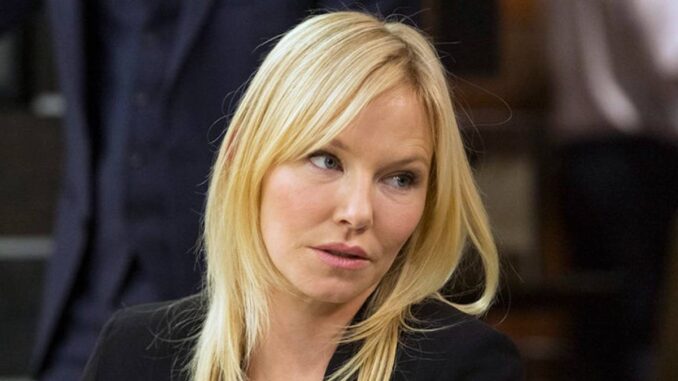
The Arc of a Detective: Rollins's Exit – Professor, PTSD, and a Wedding for Closure
Few departures hit harder than that of a long-standing, deeply flawed, and utterly beloved character. When Detective Amanda Rollins bid farewell to the chaotic, emotionally charged world of the Special Victims Unit, it wasn't a sudden, jarring exit, but a meticulously crafted narrative crescendo. SVU, known for its unflinching portrayal of trauma, delivered a masterclass in character evolution, seamlessly weaving together a new professional calling, the lingering shadows of PTSD, and a long-deserved wedding into a poignant and satisfying conclusion for a woman who had, against all odds, found her peace.
Rollins's transition from the streets of New York to the hallowed halls of academia as a criminology professor was, in retrospect, a stroke of genius. For years, viewers had watched her dissect complex cases with a keen intellect and a visceral understanding of both perpetrator and victim. Her past, rife with addiction, familial abuse, and her own brushes with the criminal justice system, had forged her into a detective whose empathy was as sharp as her skepticism. The classroom, therefore, became a natural evolution, a sanctuary where her lived experience could transcend the daily grind of trauma and become a source of education and insight. Imagine her standing before a lecture hall, her voice firm but laced with the hard-won wisdom of a thousand crime scenes, explaining the intricacies of victim psychology or the chilling calculus of a predator. It was a role that promised intellectual challenge without the constant re-traumatization of active duty, allowing her to utilize her unique skillset in a proactive, rather than reactive, capacity. This new path wasn't an escape, but an elevation, acknowledging her profound knowledge base while offering a horizon of intellectual growth.
Crucially, Rollins's journey was always shadowed by the specter of PTSD. From her volatile relationship with her sister, Kim, to the lasting scars of her abusive father and her own self-destructive tendencies fueled by past traumas, Amanda was a walking testament to the insidious, long-term effects of complex trauma. Her impulsivity, her struggles with addiction, her initial resistance to healthy relationships – these were not mere character quirks, but vivid manifestations of a life lived under constant threat, both external and internal. SVU never explicitly "cured" Rollins; instead, it portrayed her ongoing, arduous negotiation with her past. Her exit recognized that while the visible wounds might heal, the psychological shrapnel often remains. Her professor role, while offering a new environment, didn't erase her PTSD but provided a stable framework within which she could manage it. She could speak about trauma with authority, not just as a detective, but as a survivor, channeling her pain into purpose. It was a powerful message: healing isn't about forgetting, but about integrating the past into a stronger, more resilient present.
The ultimate act of closure, the punctuation mark on Rollins's tempestuous journey, came in the form of her wedding to Dominick Carisi Jr. Carisi, her steadfast partner, her unwavering advocate, and ultimately, her anchor, represented everything her past relationships lacked. He saw her, bruised but not broken, and loved her unconditionally. Their impromptu courthouse wedding, stripped of grandiosity but brimming with profound intimacy, was more than just a union of two characters; it was a symbolic culmination of Rollins's fight for normalcy, stability, and genuine love. For a woman who had spent so long building walls, the decision to publicly and legally bind herself to another, to commit to a future filled with hope and shared dreams, was an act of immense courage and vulnerability. It offered not only Rollins, but also the long-suffering audience, a sense of definitive closure. It was the visual manifestation of her healing, a promise of a safe haven after years of navigating turbulent waters, a final, beautiful testament to her resilience.
In weaving together the professor role, the acknowledgement of ongoing PTSD, and the deeply deserved wedding, SVU offered Rollins an exit that was not merely an end but a powerful, illustrative beginning. It honored her past, celebrated her growth, and solidified her legacy as a character who fought not just for victims, but for her own redemption. Her departure was a poignant reminder that even in the darkest of worlds, hope, healing, and the chance for a truly peaceful life are always within reach.
